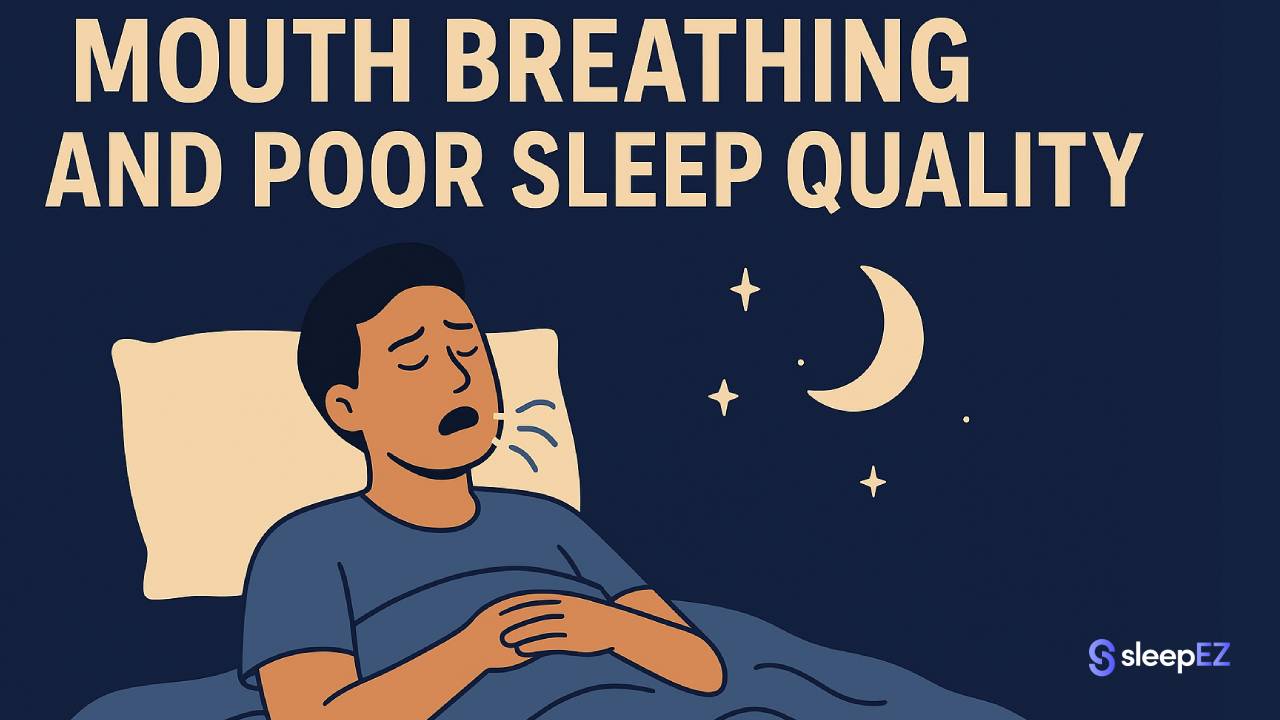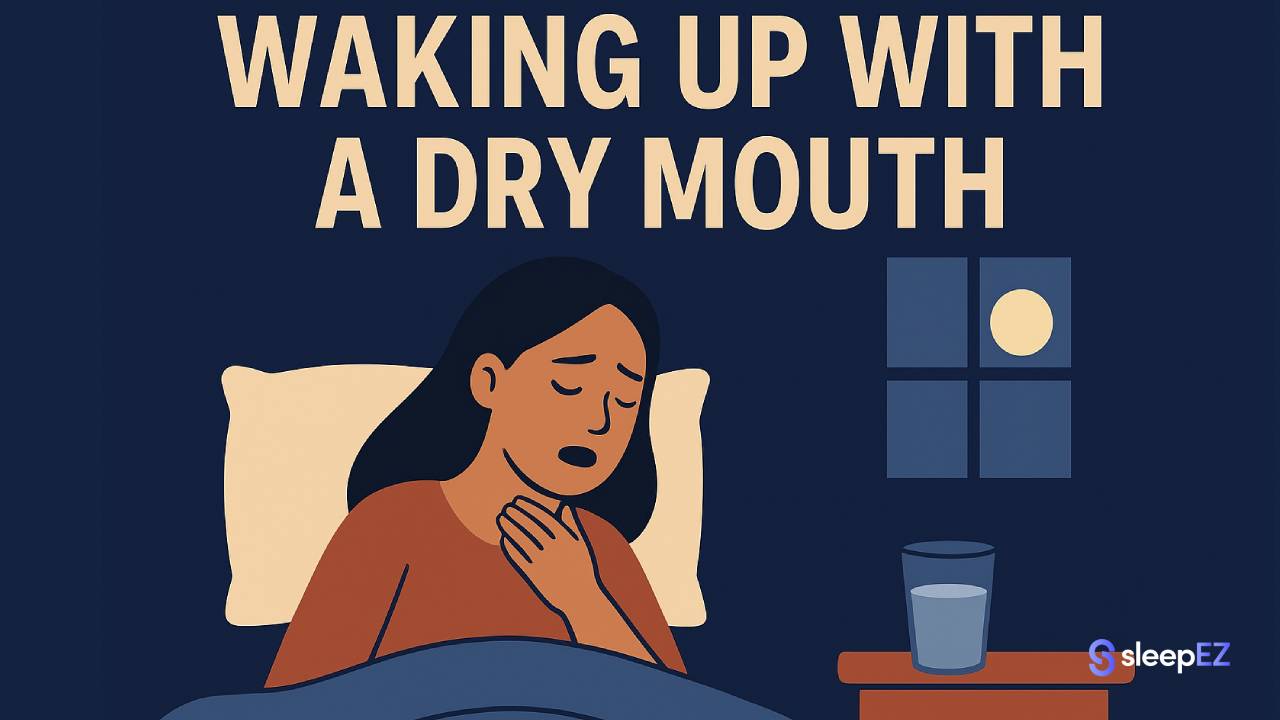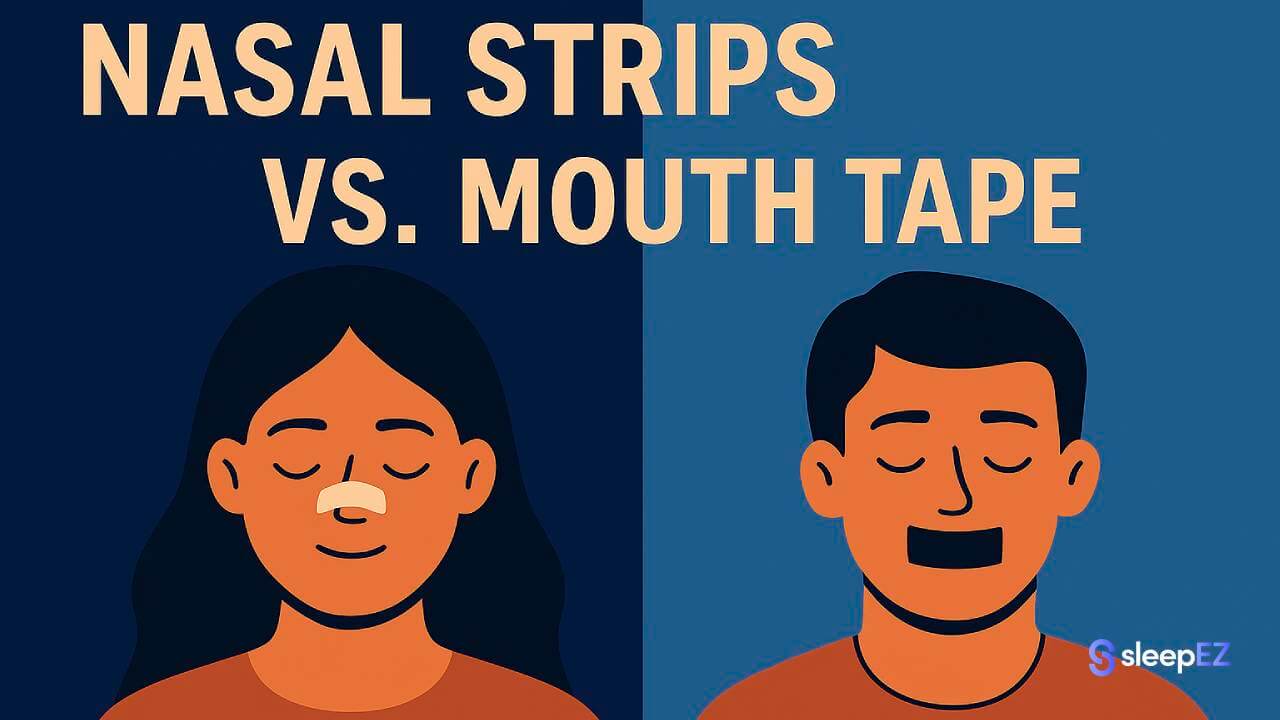You did everything right. You went to bed on time and got your 8 hours. So why do you feel like you barely slept at all?
The answer might be simpler than you think. While you were asleep, you were breathing through your mouth. This single habit can wreck your sleep quality in ways you'd never expect.
This article explains how mouth breathing sabotages your rest and what you can do to fix it.
How Mouth Breathing Disrupts Your Sleep: 3 Key Mechanisms
1. It Robs Your Body of Oxygen
Mouth breathing is shallow and inefficient. Your nose is designed to filter, warm, and regulate air. Your mouth isn't.
Think of it like trying to fill a bucket with a leaky hose. You're getting water, but not enough to do the job properly.
When you breathe through your mouth, your body gets less oxygen. This means your brain and muscles don't recover the way they should. You wake up tired. You feel foggy. Your body went through the motions of sleep, but it didn't get what it needed.
2. It Prevents You From Reaching Deep Sleep
Mouth breathing often leads to snoring and increased airway resistance. These cause something called micro-arousals. You don't fully wake up, so you won't remember them. But your brain does.
Each micro-arousal pulls you out of deep sleep and REM sleep. These are the stages where your body repairs tissue, consolidates memory, and processes emotions. Without enough time in these stages, you feel unrefreshed no matter how long you stayed in bed.
3. It Keeps Your Body in a State of Stress
Your nervous system has two modes. The sympathetic system handles "fight or flight." The parasympathetic system handles "rest and digest."
Mouth breathing activates your sympathetic system. It signals stress. Nasal breathing, on the other hand, promotes the parasympathetic response. It tells your body it's safe to relax and recover.
You can't truly rest if your body thinks it's under threat. Sleep should be a time of recovery. Mouth breathing turns it into a low-grade stress event.
How to Improve Sleep Quality by Breathing Correctly
The key to better sleep is simple: breathe through your nose all night long.
But here's the problem. You can't control your breathing while you're asleep. Your body defaults to whatever habit it's built. If that habit is mouth breathing, willpower won't help.
This is why tools designed to encourage nasal breathing have become so popular. The most direct method is using gentle, skin-safe mouth tape for sleep.
It doesn't force you to breathe. It simply removes the inefficient mouth breathing option, guiding your body to use the nasal pathway it was designed for.
By promoting nasal breathing, you allow your body to get more oxygen, stay in deep sleep longer, and enter a true state of rest. To understand more about this simple but powerful tool, you can read about the benefits of mouth tape for sleep here.
Stop Surviving, Start Recovering
Sleep quality isn't just about hours in bed. It's about how you breathe during those hours.
By making the switch to nasal breathing, you can transform your sleep from a period of survival into a period of true recovery. You'll finally wake up feeling the way you're supposed to: rested, clear, and energized.




Leave a comment
This site is protected by hCaptcha and the hCaptcha Privacy Policy and Terms of Service apply.